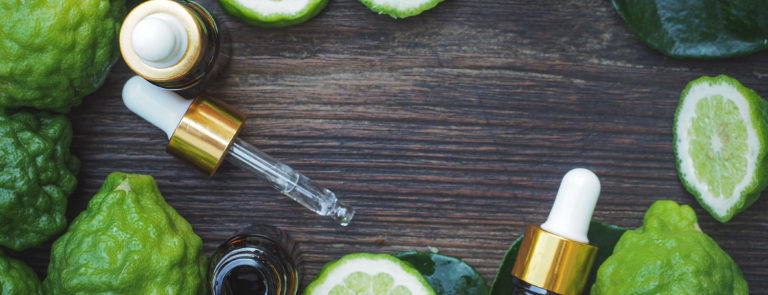10% off £35
Code:SAVE
How social media can affect your mood

Social media has changed the way we communicate. It’s easy to overlook the impact it has on our moods, both negative or positive. Here's how social media can affect your mood.
Hooked on Instagram? Can’t leave Facebook alone? You need to read this…
Over the last decade, social media has changed the way we communicate – and it’s hard to imagine life without it now. But if you’ve ever had an envious twinge looking at a friend’s fabulous holiday pics on Facebook, or felt inadequate reading your colleague’s CV on LinkedIn, you’ll know social media can affect your mood. So, how much of an impact does it really have? And can we reset our relationship with social media?
The negative effects of social media
One Serbian study found the more time high school students spent on social networking sites, the more likely they were to experience depressive symptoms.1 And researchers from the University of Pittsburgh found the more different platforms people use, the higher their risk of mental health issues.2
Social media use can also promote loneliness and isolation, according to a 2017 review by Duke University.3 We often use sites like Facebook for ‘social snacking’, which gives the illusion of connection, but does not fulfil us in the same way as real life social interactions.
How social media can boost your mood
Luckily, it’s not all bad news. One study published in Cyberpsychology, Behaviour and Social Networking in 2011 found Facebook can enhance our self-esteem,4 probably because we’re able to select the most positive aspects of our appearance, personality and life for others to see, which boosts the way we feel about ourselves.
Other US research found social media use could ease depression when it’s used to stay in touch with people,5 while a study from the University of South Florida on the over-50s found using the internet to connect with friends and family could actually strengthen social bonds, rather than lead to isolation.6
Handpicked content: The link between depression and inflammation
Use it the right way
The Duke University analysis showed that those who get involved on social media – posting photos, joining in discussions and adding comments, for example – are likely to get more positives from it. Meanwhile, those who ‘lurk’ – looking at other people’s posts but never commenting or posting any of their own – are at risk of feeling isolated and comparing their lives to others unfavourably.7 Your personality counts, too. Psychological research has shown getting a lot of ‘likes’ can help you feel supported,8,9 but if you have low self-esteem, negative comments or a low number of likes can bring you down. If your self-esteem is better, you’re less likely to be affected either way by likes and comments.10
Three tips for better social networking
- Use social media to support real-life socialising - Facebook can be an easy way to send an invitation to a group of friends, while apps such as Meetup help you to find like-minded people for activities in your area.
- Cocoon yourself when you’re feeling low - There are times it may be best to stay off social media – seeing lots of Mother’s Day posts can be difficult if you’ve recently lost your mum, for example.
- Remember you’re not always seeing reality - Many of us only post our ‘best bits’ and the lives you see online are unlikely to be as perfect as they may seem.
- Pantic I, et al. Association between online social networking and depression in high school students: behavioral physiology viewpoint. Available from: http://www.hdbp.org/psychiatria_danubina/pdf/dnb_vol24_no1/dnb_vol24_no1_90.pdf
- American Psychiatric Association: Psychiatric News. Using Many Social Media Platforms Linked With Depression, Anxiety Risk. Available from: http://psychnews.psychiatryonline.org/doi/full/10.1176/appi.pn.2017.1b16
- Clark JL, Algoe SB and Green MC. Social Network Sites and Well-Being: The Role of Social Connection. Available from: http://journals.sagepub.com/doi/full/10.1177/0963721417730833
- Gonzales AL, Hancock JT. Mirror, mirror on my Facebook wall: effects of exposure to Facebook on self-esteem. Available from: https://www.ncbi.nlm.nih.gov/pubmed/21329447
- Bessière K, et al. Effects of internet use on health and depression: a longitudinal study. Available from: https://www.ncbi.nlm.nih.gov/pubmed/20228047
- Hogeboom L, et al. Internet Use and Social Networking Among Middle Aged and Older Adults. Available from: https://www.researchgate.net/publication/233142903_Internet_Use_and_Social_Networking_Among_Middle_Aged_and_Older_Adults
- As Source 3
- Ellison NB, et al. Cultivating Social Resources on Social Network Sites: Facebook Relationship Maintenance Behaviors and Their Role in Social Capital Processes. Available from: https://onlinelibrary.wiley.com/doi/full/10.1111/jcc4.12078
- Wohn D, Hayes RA, Carr CT. How Affective Is a ‘like’? The Effect of Paralinguistic Digital Affordances on Perceived Social Support. Available from: https://www.researchgate.net/publication/308203438_How_Affective_Is_a_Like_The_Effect_of_Paralinguistic_Digital_Affordances_on_Perceived_Social_Support
- Scissors L, Burke M, Wengrovitz S. What’s in a Like? Attitudes and behaviors around receiving likes on Facebook. Available from: https://dl.acm.org/citation.cfm?id=2820066
Advice is for information only and should not replace medical care. Please check with your GP before trying any remedies.
Related Articles
Shop by wellness goal
Sign up for exclusive offers
Plus, get expert advice to support your health & wellness straight to your inbox when you sign up to Holland & Barrett emails.
Read our
privacy policy














